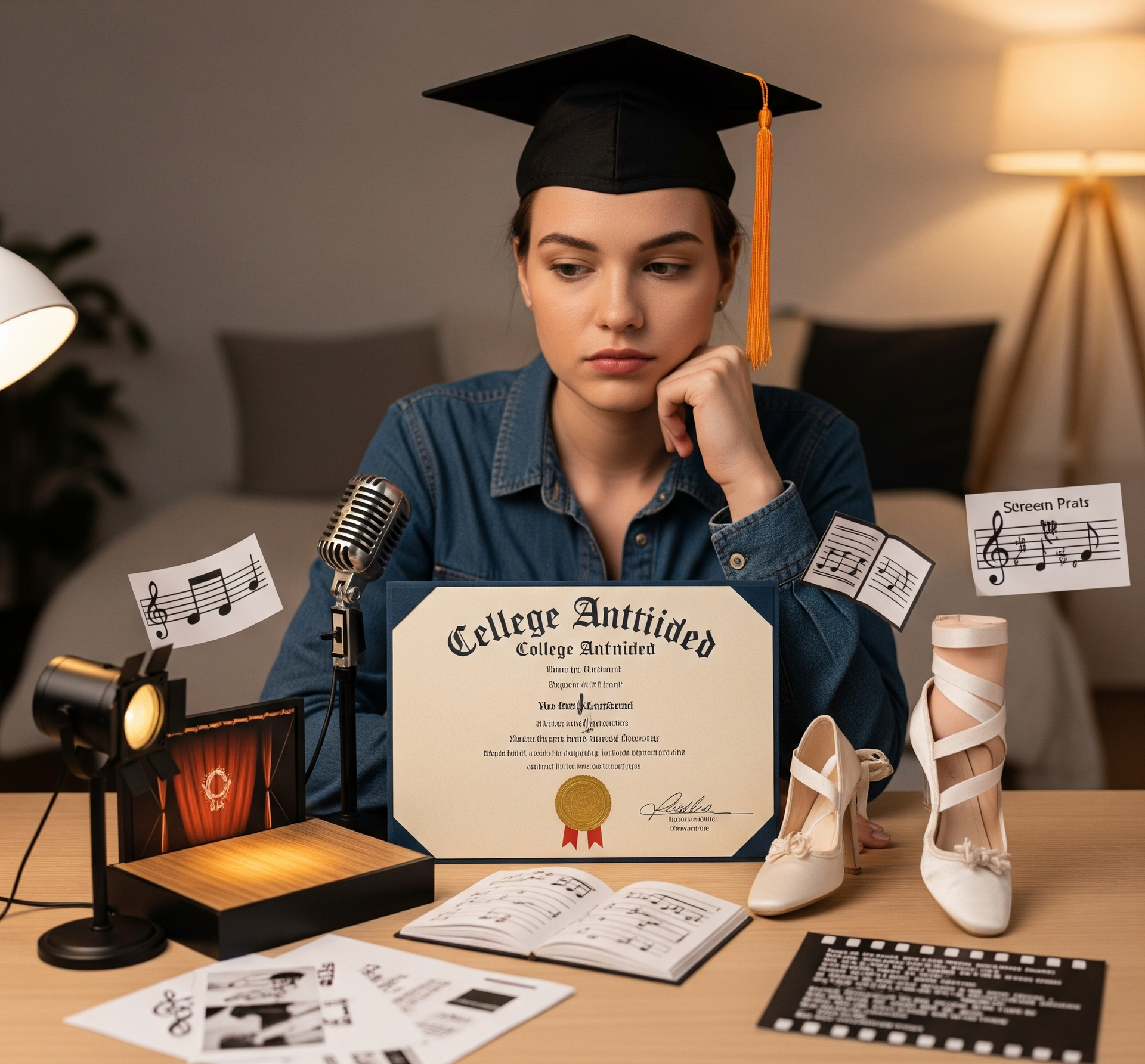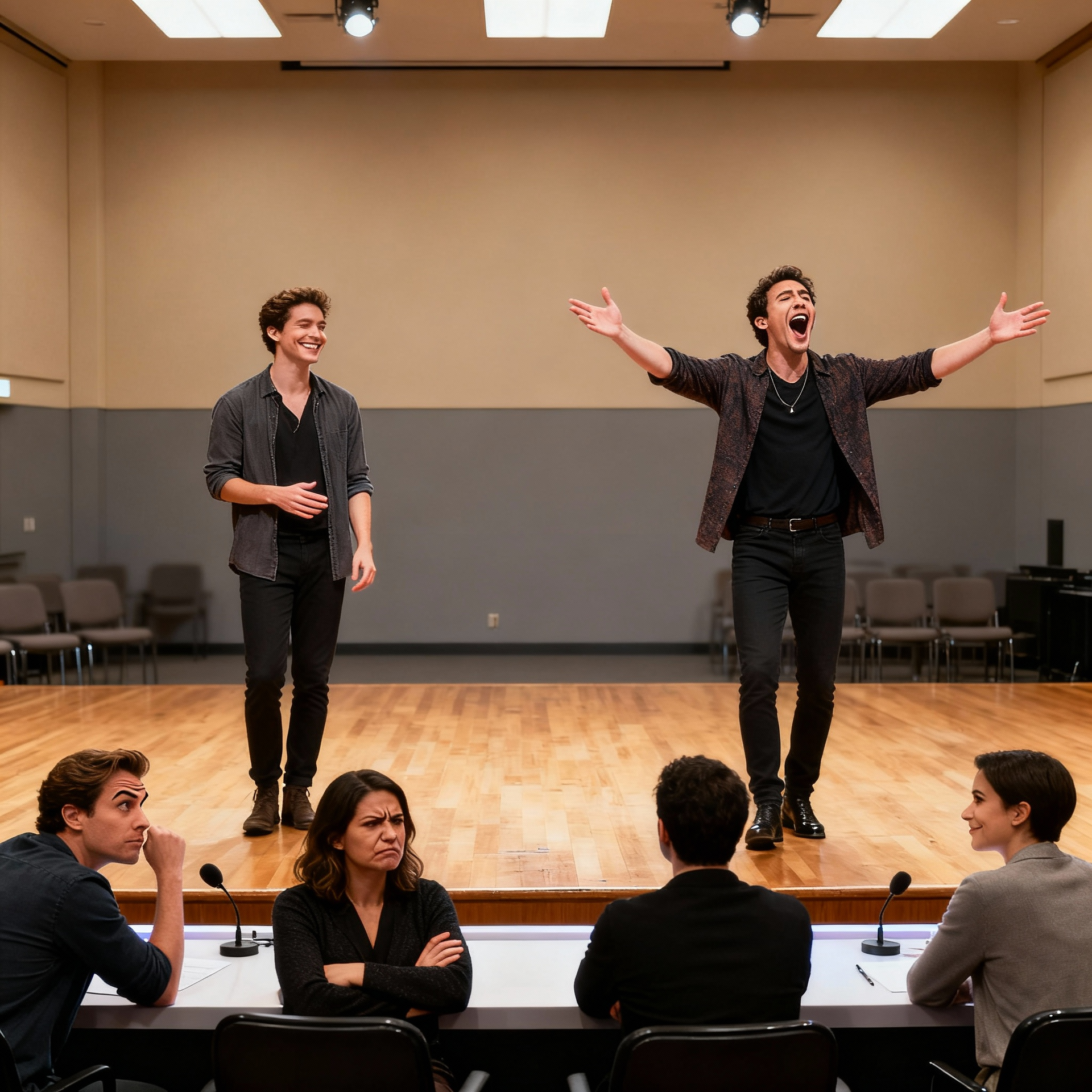To College or Not to College?
Navigating Your Path in the Performing Arts
By Victor Lopez
As a vocal coach and the founder of Lopez Studios Inc. in Reston, Virginia, I've had the privilege of witnessing countless aspiring performers chase their dreams. One of the most common and important questions that comes up, especially for parents and students, is: Is college necessary to make it in the performing arts?
It's a valid question, especially considering the significant financial investment that higher education entails. The truth is, there's no single, clear-cut answer. The path to a successful career in the performing arts is as diverse and unique as the individuals who pursue it. Let's break down the different options and help you navigate this crucial decision.
The Traditional Route: College and Conservatory Programs
For many, a college degree in a performing arts discipline (like music, theater, dance, etc.) or a conservatory program offers invaluable benefits:
- Comprehensive Training:
These programs provide structured, in-depth training in technique, theory, history, and performance practice. You'll work with experienced faculty, often professionals in the field.
- Networking Opportunities:
College provides a built-in network of fellow students, faculty, and alumni who can become future collaborators and professional contacts.
- Credentials:
A degree can be advantageous when applying for certain jobs, auditions, and grants, particularly in areas like opera, classical music, and teaching.
- Personal Growth:
The college experience fosters personal growth, critical thinking, and discipline, which are valuable in any career.
However, it's important to consider the financial commitment and the time investment involved. Tuition, living expenses, and the opportunity cost of not earning a full-time income can be substantial.
Alternative Avenues to Success: Beyond the Bachelor's Degree
The performing arts landscape is evolving, and many successful artists have forged their careers through alternative paths:
- Intensive Workshops and Private Study:
Focused workshops with renowned professionals, masterclasses, and consistent private lessons can provide targeted skill development without the commitment of a full degree program.
- Apprenticeships and Internships:
Gaining practical, real-world experience through apprenticeships with theater companies, dance troupes, music organizations, or film/television productions can be incredibly valuable for building skills and industry connections.
- Building Your Own Portfolio:
Creating your own opportunities through independent projects, self-produced shows, online content (YouTube, TikTok, etc.), and networking within your local arts community can lead to recognition and paid work.
- Direct Entry into the Industry:
For some, particularly in more commercial areas like musical theater, pop music, or commercial dance, landing that crucial audition or getting signed by an agent can be the launchpad for a career, often supplemented by ongoing training.
What's Right for You? Key Considerations
The best path depends on individual circumstances, goals, and learning styles. Here are some questions to consider:
- What are your specific career goals?
Are you aiming for opera, Broadway, film, teaching, or something else? Some fields may place a higher value on formal education.
- How do you learn best?
Do you thrive in a structured academic environment, or are you more self-directed and hands-on?
- What are your financial resources?
Can you comfortably afford a college education without incurring excessive debt?
- What kind of network do you already have or can you build?
Networking is crucial regardless of your educational path.
- What is your level of self-discipline and motivation?
Succeeding outside of a structured program requires significant self-direction.
Advice for Parents
Support your child's passion while also encouraging them to explore all options. Research different programs and alternative paths together. Help them connect with professionals in their field of interest. The most important thing is to find a path that provides them with the necessary skills, connections, and confidence to pursue their dreams sustainably.
Advice for Aspiring Performers
Be proactive and take ownership of your training and career development, regardless of whether you choose to go to college. Seek out opportunities to learn, perform, and network. Stay open to different paths and be prepared to adapt. Your talent, dedication, and resilience will be your most valuable assets.
Ultimately, success in the performing arts is about talent, hard work, perseverance, and making smart choices about your training and career development. College can be a valuable tool for many, but it's not the only route to achieving your artistic dreams. Explore your options, weigh the pros and cons, and choose the path that best aligns with your individual goals and circumstances.
Here at Lopez Studios Inc., we are committed to helping performers of all ages and backgrounds navigate their unique journeys in the performing arts. Don't hesitate to reach out if you have any questions or would like to discuss your individual path!
RELEVANT RESOURCES TO EXPLORE
COMING SOON!
SHARE THIS BLOG POST










